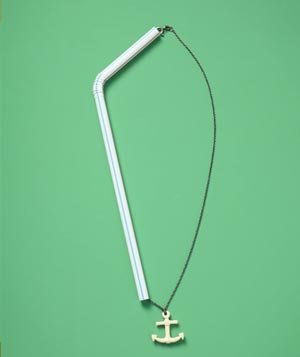DIANE'S CORNER ...
Celebrate Fibromyalgia Awareness Day
Fibromyalgia is an immobilizing, difficult to manage and not widely known disease which affects many men and women worldwide.
It’s a disease which is about seven times as likely to affect women than men, and although it usually is seen in people between the ages of 30 and 50 it can appear in sufferers of any age, whether elderly or child.
Fibromyalgia is a difficult disease to diagnose – there isn’t a specific set of testing which is able to find and diagnose it, and the symptoms that sufferers experience are often attributed to other diseases before fibromyalgia is presented as the culprit.
Fibromyalgia Awareness Day is all about raising awareness for this disease and supporting further research into eventually finding a cure.
History of Fibromyalgia Awareness Day
Awareness and funding are the keys to battling the enigma that is Fibromyalgia, and this day was created for just that.
On May 12th each year, observers of this day get together and take part in fundraising events, charity runs, tea parties – anything to get the conversation going.
Symptoms of Fibromyalgia may include heightening skin sensitivity – especially to pain, muscle stiffness, some difficulties sleeping, problems with memory and concentration, extreme tiredness, and headaches. These symptoms are not uncommon in other diseases – and some sufferers don’t even experience all these symptoms – so it’s easy to see what makes fibromyalgia so tricky to diagnose.
There is no cure for fibromyalgia, so at the moment the only option for sufferers is to have a number of treatments. For example, medication such as painkillers and antidepressants are often prescribed. Sufferers may also find that lifestyle changes may help, and there’s plenty of support groups available via healthcare services keen to offer support.

Word of the Day
resistentialism

MEANING:
noun: The theory that inanimate objects demonstrate hostile behavior toward us.
ETYMOLOGY:
Coined by humorist Paul Jennings as a blend of the Latin res (thing) + French resister (to resist) + existentialism (a kind of philosophy). Earliest documented use: 1948.
NOTES:
If you ever get a feeling that the photocopy machine can sense when you’re tense, short of time, need a document copied before an important meeting, and right then it decides to take a break, you’re not alone. Now you know the word for it.
USAGE:
“Scornful and uncooperative objects -- pianos that mock our sausage fingers; computers that develop transient but alarming hypochondria; keys, socks, and teaspoons that scurry off to their secret covens and never return. There are certainly days when resistentialism seems the only explanation.”
Michael Kaplan and Ellen Kaplan; Bozo Sapiens: Why to Err Is Human; Bloomsbury; 2009.
“Resistentialism also has a long history in our literature. In his ‘Ode (Inscribed to W.H. Channing)’ (1846), Ralph Waldo Emerson saw the resistentialist writing on the wall and proclaimed that ‘Things are in the saddle, / And ride mankind.’”
Charles Harrington Elster; Are Things Sometimes Against Us?; Pittsburgh Post-Gazette (Pennsylvania); Sep 21, 2003.
Michael Kaplan and Ellen Kaplan; Bozo Sapiens: Why to Err Is Human; Bloomsbury; 2009.
“Resistentialism also has a long history in our literature. In his ‘Ode (Inscribed to W.H. Channing)’ (1846), Ralph Waldo Emerson saw the resistentialist writing on the wall and proclaimed that ‘Things are in the saddle, / And ride mankind.’”
Charles Harrington Elster; Are Things Sometimes Against Us?; Pittsburgh Post-Gazette (Pennsylvania); Sep 21, 2003.
Idiom of the Day
Buckle down -
Meaning - Doing some hard work with determination and full attention.
Example - Getting through the exam for civil services is possible when you have buckled down yourself.
This Day in History

1847 - William Clayton invented the odometer.
 1888 - Charles Sherrill of the Yale track team became the first runner to use the crouching start for a fast break in a foot race.
1888 - Charles Sherrill of the Yale track team became the first runner to use the crouching start for a fast break in a foot race.
 1937 - Britain's King George VI was crowned at Westminster Abbey.
1937 - Britain's King George VI was crowned at Westminster Abbey.
 1960 - Frank Sinatra and Elvis Presley appeared on the same TV special and performed the others hit. Elvis sang "Witchcraft" and Sinatra sang "Love Me Tender."
1960 - Frank Sinatra and Elvis Presley appeared on the same TV special and performed the others hit. Elvis sang "Witchcraft" and Sinatra sang "Love Me Tender."
 1965 - "Satisfaction" was recorded by the Rolling Stones.
1965 - "Satisfaction" was recorded by the Rolling Stones.
 1970 - Ernie Banks, of the Chicago Cubs, hit his 500th home run.
1970 - Ernie Banks, of the Chicago Cubs, hit his 500th home run.
 1977 - "Hotel California" earned a gold record for the Eagles.
1977 - "Hotel California" earned a gold record for the Eagles.

1978 - The National Oceanic and Atmospheric Administration announced that they would no longer exclusively name hurricanes after women.
 1985 - An honorary Doctor of Music degree was given to Lionel Richie from his alma mater Tuskegee Institute in Alabama.
1985 - An honorary Doctor of Music degree was given to Lionel Richie from his alma mater Tuskegee Institute in Alabama.

2002 - Former U.S. President Carter arrived in Cuba for a visit with Fidel Castro. It was the first time a U.S. head of state, in or out of office, had gone to the island since Castro's 1959 revolution.

2015 - It was announced that Verizon would be acquiring AOL.

DAILY SQU-EEK

If You Were Born Today, May 12
Personable, friendly, caring, and charming, you are a thoughtful person and can put yourself into almost anyone’s shoes. Funny and witty, you have a true way with words and can be quite excellent at writing, promotion, advertising, and the like. You are also good at managing money and coming up with money-making ideas. You are versatile, yet stable and secure. Famous people born today:
 1820 Florence Nightingale, British nurse (Crimean War), born in Florence, Italy (d. 1910)
1820 Florence Nightingale, British nurse (Crimean War), born in Florence, Italy (d. 1910)
 1907 Katharine Hepburn, American actress (Adam's Rib, On Golden Pond), born in Hartford, Connecticut (d. 2003)
1907 Katharine Hepburn, American actress (Adam's Rib, On Golden Pond), born in Hartford, Connecticut (d. 2003)
 1918 Julius Rosenberg, 1st US civilian executed for espionage, born in NYC, New York
1918 Julius Rosenberg, 1st US civilian executed for espionage, born in NYC, New York
 1924 Tony Hancock, English comedian and actor (Hancock's Half Hour), born in Birmingham, England (d. 1968)
1924 Tony Hancock, English comedian and actor (Hancock's Half Hour), born in Birmingham, England (d. 1968)
 1925 Yogi Berra [Lawrence Peter Berra], American baseball catcher, coach and manager (NY Yankees, Mets), born in St. Louis Missouri (d. 2015)
1925 Yogi Berra [Lawrence Peter Berra], American baseball catcher, coach and manager (NY Yankees, Mets), born in St. Louis Missouri (d. 2015)
 1956 Homer Simpson, fictional character from the long running television show "The Simpsons", born in Springfield
1956 Homer Simpson, fictional character from the long running television show "The Simpsons", born in Springfield
 1975 Jonah Lomu, New Zealand rugby union winger (youngest ever All Black, 63 internationals), born in Auckland (d. 2015)
1975 Jonah Lomu, New Zealand rugby union winger (youngest ever All Black, 63 internationals), born in Auckland (d. 2015)

1981 Rami Malek, American actor (Bohemian Rhapsody), born in Los Angeles, California

READERS INFO
1.
1970 -
1847 - William Clayton invented the odometer.
1978 - The National Oceanic and Atmospheric Administration announced that they would no longer exclusively name hurricanes after women.
2002 - Former U.S. President Carter arrived in Cuba for a visit with Fidel Castro. It was the first time a U.S. head of state, in or out of office, had gone to the island since Castro's 1959 revolution.
2015 - It was announced that Verizon would be acquiring AOL.

DAILY SQU-EEK









1981 Rami Malek, American actor (Bohemian Rhapsody), born in Los Angeles, California

READERS INFO
 |
TODAY: In 1970, Swedish poet, playwright, and Novel Prize winner Nelly Sachs dies.
2.
Oaks & Spokes Bicycle Festival 2019
May 16 - 17, 2019 | Raleigh, NC

Held over multiple days, Oaks & Spokes invites guest to explore a range of bike-centric events and activities. Attendees can enjoy a variety of unique attractions such as a bike-inspired art show, a scavenger hunt, a vintage bike show, bike-related films, various led bike tours, engaging kid’s activities and a block party where you can sell, swap and buy bike parts.
further information: Oats and Spokes
3.
Porterville Fair 2019
May 15 - 19, 2019 | Porterville, CA
Porterville Fair Grounds|2700 W Teapot Dome Ave
The Porterville Fair in Porterville, California, is a fantastic community-focused celebration that’s fit for revelers of all ages. Attendees can enjoy a variety of fun and enriching events over the course of four days. Festivities include carnival rides and games, agriculture & livestock shows, horticulture displays, sports and much more.
further information:
further information:
4.
InterFuse 2019
May 16 - 19, 2019 | Waynesville, MO
Shriners Club Campground|26920 Shrines Rd
Interfuse - also known as the Midwest Regional Burn - is an annual camping festival in May. The event focuses on the celebration of life, music, art and community and maintains the traditional Burning Man standard of leaving no trace.
further information:
InterFuse 2019
SUNDAY'S INTERESTING FACTS
 One somewhat unique thing about the United States’ cash prizes for Olympic medals is that they are taxed, as are the value of the medals themselves. Most Olympic medalists from other countries are not similarly taxed for Olympic medal cash prizes, though there are a few other nations that do this. This practice in the United States has very recently been highly publicized by certain politicians jockeying for free press as election time comes near. One such politician, Senator Marco Rubio on August 1, 2012 introduced a bill into congress to exempt Olympic medalists from being taxed on these cash prizes for Olympic medals. As he said, “We can all agree that these Olympians who dedicate their lives to athletic excellence should not be punished when they achieve it.” Of course, few voters would agree that this same line of reasoning would hold for individuals who dedicate their lives to business excellence and eventually reach the top of the business world, or scientists or the like, but the sentiment is nice, and probably very much appreciated by those medalists who medal in lesser celebrated events that don’t bring the sponsorship dollars in. Of course, the Michael Phelps’s of the world probably couldn’t care less about the loss of 35% of their Olympic medal cash prizes. Their loss of 35% of the sponsorship dollars to taxes probably stings a bit though.
One somewhat unique thing about the United States’ cash prizes for Olympic medals is that they are taxed, as are the value of the medals themselves. Most Olympic medalists from other countries are not similarly taxed for Olympic medal cash prizes, though there are a few other nations that do this. This practice in the United States has very recently been highly publicized by certain politicians jockeying for free press as election time comes near. One such politician, Senator Marco Rubio on August 1, 2012 introduced a bill into congress to exempt Olympic medalists from being taxed on these cash prizes for Olympic medals. As he said, “We can all agree that these Olympians who dedicate their lives to athletic excellence should not be punished when they achieve it.” Of course, few voters would agree that this same line of reasoning would hold for individuals who dedicate their lives to business excellence and eventually reach the top of the business world, or scientists or the like, but the sentiment is nice, and probably very much appreciated by those medalists who medal in lesser celebrated events that don’t bring the sponsorship dollars in. Of course, the Michael Phelps’s of the world probably couldn’t care less about the loss of 35% of their Olympic medal cash prizes. Their loss of 35% of the sponsorship dollars to taxes probably stings a bit though.

- Wearing a gold watch in Lincoln’s time was a sign of success and status. The watch was one of the only items of “vanity” that Lincoln carried on him. It was purchased in Springfield, Illinois in the 1850s, but the watch itself was made in Liverpool, England, and the gold casing was made in an unknown shop in America.
-

- This particular pocket watch was an “everyday” watch. However, George Thomas—the man who took the watch apart for the inscription reveal—said it looked like Lincoln hadn’t used it much, it was in such great condition. All the pieces were in fantastic shape, and it even had its original hands.

- Did you see Lincoln, the Steven Spielberg biographical movie about the late president? If so, you’ve heard the ticking of Abraham Lincoln’s watch. No, it wasn’t this one with the inscription on it—it was the one that Lincoln was wearing when he died. Spielberg doesn’t do anything by halves, and he wanted to include the sound of a watch from Lincoln’s time. This second watch was in the care of the Kentucky Historical Society. They decided to see if the watch, which had been silent for 150 years, would start working again. It did, and the film crew was able to record it for Lincoln. There were many people who were outraged that this happened, because the watch could have been damaged. Spielberg actually approached the Smithsonian about recording the inscription watch, but they turned him down, thinking it was too risky. No real harm was done to the other watch, except it will now need some restoration after being oiled and wound.
PATTERN BOOK SUNDAY
- Wearing a gold watch in Lincoln’s time was a sign of success and status. The watch was one of the only items of “vanity” that Lincoln carried on him. It was purchased in Springfield, Illinois in the 1850s, but the watch itself was made in Liverpool, England, and the gold casing was made in an unknown shop in America.
- This particular pocket watch was an “everyday” watch. However, George Thomas—the man who took the watch apart for the inscription reveal—said it looked like Lincoln hadn’t used it much, it was in such great condition. All the pieces were in fantastic shape, and it even had its original hands.
- Did you see Lincoln, the Steven Spielberg biographical movie about the late president? If so, you’ve heard the ticking of Abraham Lincoln’s watch. No, it wasn’t this one with the inscription on it—it was the one that Lincoln was wearing when he died. Spielberg doesn’t do anything by halves, and he wanted to include the sound of a watch from Lincoln’s time. This second watch was in the care of the Kentucky Historical Society. They decided to see if the watch, which had been silent for 150 years, would start working again. It did, and the film crew was able to record it for Lincoln. There were many people who were outraged that this happened, because the watch could have been damaged. Spielberg actually approached the Smithsonian about recording the inscription watch, but they turned him down, thinking it was too risky. No real harm was done to the other watch, except it will now need some restoration after being oiled and wound.
PATTERN BOOK SUNDAY

Minnesota is a state in the Midwestern United States, carved out of the eastern half of the Minnesota Territory and admitted to the Union as the 32nd state on May 11, 1858. While the state's residents are primarily white and northern European, substantial influxes of African, Asian and Hispanic immigrants have joined the descendants of European immigrants and of the original Native American inhabitants. Nearly 60 percent of Minnesota's residents live in the Minneapolis–Saint Paul metropolitan area, known as the Twin Cities. The remainder of the state, often referred to as Greater Minnesota, consists of western prairies now given over to intensive agriculture; eastern deciduous forests, also heavily farmed and settled; and the less-populated northern taiga. The state, known as the "Land of 10,000 Lakes", is known for its moderate-to-progressive politics and social policies, its civic involvement and its high voter turnout. This picture is a depiction of the historical coat of arms of Minnesota, illustrated by American engraver Henry Mitchell as part of State Arms of the Union, published in 1876 by Louis Prang. The escutcheon features a Native American riding on horseback in the background, while a farmer plows a field in the foreground, with his rifle resting on a stump nearby; these represent the state's peoples and industries. The French motto below the shield reads L'Étoile du Nord, meaning 'The Star of the North'.
SWAMP RACCOON

While I was looking for alligators at a swamp in Louisiana, this beautiful little creature wandered out of the murky waters right into the morning light.
knit
thanks, Helen

knit
thanks, Sarah

knit

knit, Vintage
knit

Knit Pattern of the Day: Valerie, Canadian Correspondent

crochet
thanks, Ava
crochet
thanks, Ann

Mermaid
crochet
crochet
crochet
RECIPE
thanks, Shelley

CROCKPOT RECIPE
thanks, Dana
SWEETS
thanks, Tina

COOKBOOK SUNDAY
ADULT COLORING

CRAFTS
thanks, Kay

CHILDREN'S CORNER ... poetry
PUZZLE
SUDOKU ... very hard
solution:
QUOTE
thanks, Alice


CLEVER
Thread your necklace through a plastic drinking straw to keep the chain from tangling

EYE OPENER
thanks, Lyn
Mother's Day

Mother's Day, observed the second Sunday in May, is a time to honor mothers, grandmothers, and great-grandmothers for their contribution to family and society.
Mother's Day is celebrated with gifts, cards, flowers, a special meal out, jewelry, or chocolates and candy. Other special treats might include a spa or beauty treatment. It has become the most commercialized holiday for dining out and jewelry sales, with over $14 billion spent on this day.
Mother's Day originated from mainly two women, Julia Ward Howe and Anna Jarvis. Julia Ward, who wrote the "Battle Hymn of the Republic", suggested a day of peace and strongly advocated other women to stand up against the war. From this plea she was able to get Boston to recognize mothers on the 2nd Sunday in June. It lasted for about 10 years.
Anna Jarvis organized the first Mother's Day in Grafton, West Virginia at St. Andrew's Methodist Church in 1908. From there, even though Anna never had any children, she wanted to carry out her own mother's wishes of having a day just for moms. Anna tirelessly campaigned and on May 8th, 1914 President Woodrow Wilson signed a Joint Resolution designating the second Sunday in May as Mother's Day.




No comments:
Post a Comment